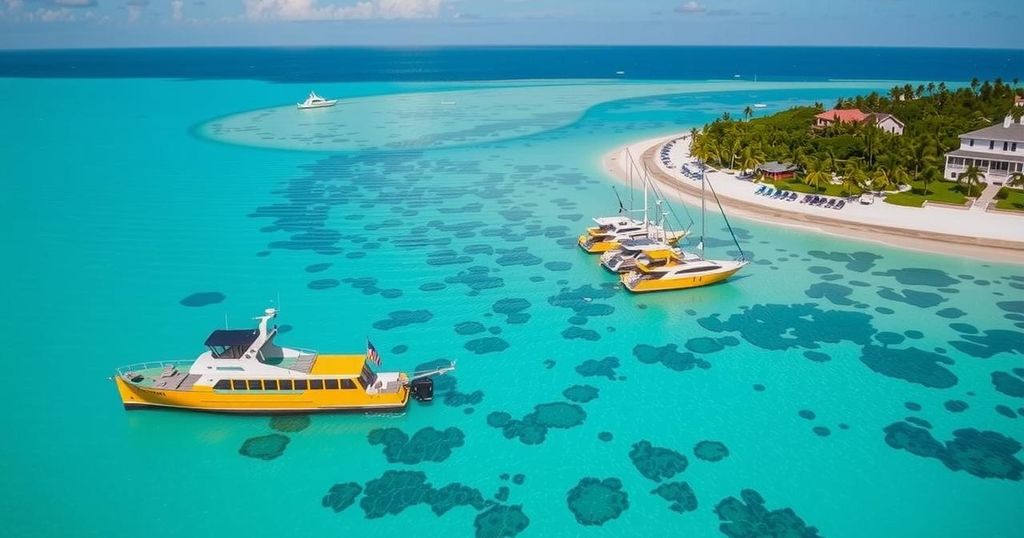The Bahamas has initiated a $120 million nature-for-debt swap to fund climate change projects over the next 15 years, supported by Standard Chartered Bank and private investors. The initiative aims to protect marine environments crucial for local fisheries, starting with restoration efforts from Hurricane Dorian impacts. This represents a pioneering model in environmental financing, with commitments toward climate change mitigation.
The Bahamas has announced a significant initiative to allocate over $120 million for climate change mitigation through a novel debt swap arrangement facilitated by Standard Chartered Bank and backed by private investors. This agreement involves repurchasing existing debt using a new loan characterized by lower interest rates, thereby unlocking approximately $124 million over the next 15 years for marine conservation efforts aimed at preserving the nation’s rich aquatic ecosystem.
This funding will specifically target the restoration of trees and habitats adversely affected by Hurricane Dorian in 2019 and facilitate the protection of a marine area exceeding the size of the Gulf of Mexico. Furthermore, officials emphasize that these conservation measures will bolster the resilience of commercial fisheries, which are essential for the nation’s economy, notably the spiny lobster fishery that contributes about $100 million annually.
The Bahamas joins the ranks of other countries such as Belize, Gabon, and Barbados that have entered similar agreements; however, this marks the inaugural instance of a private investor providing credit insurance for such a project. Additionally, it is the first agreement to include explicit commitments for climate change mitigation, as stated by The Nature Conservancy, one of the organizations involved in the initiative.
With over 17 percent of its coastal waters under protection, covering more than 16 million acres, The Bahamas has a commendable track record in safeguarding its natural habitats.
The initiative described in the article reflects a growing trend among nations, particularly small island states, to find innovative financial solutions to support environmental conservation while managing public debt. The concept of a nature-for-debt swap allows countries to redirect financial resources from repaying debt into projects aimed at environmental restoration and preservation. Such arrangements are vital for the Caribbean region, which is particularly vulnerable to climate change impacts due to its geographical characteristics and economic dependence on marine resources.
In summary, the Bahamas’ $120 million debt swap is a landmark initiative that not only aims to combat climate change but also seeks to promote biodiversity and sustain local fisheries. This collaborative effort, involving private investors and financial institutions, underscores a pioneering approach to integrating economic and environmental objectives. As other nations look to The Bahamas’ model, it may pave the way for future conservation financing strategies.
Original Source: san.com






